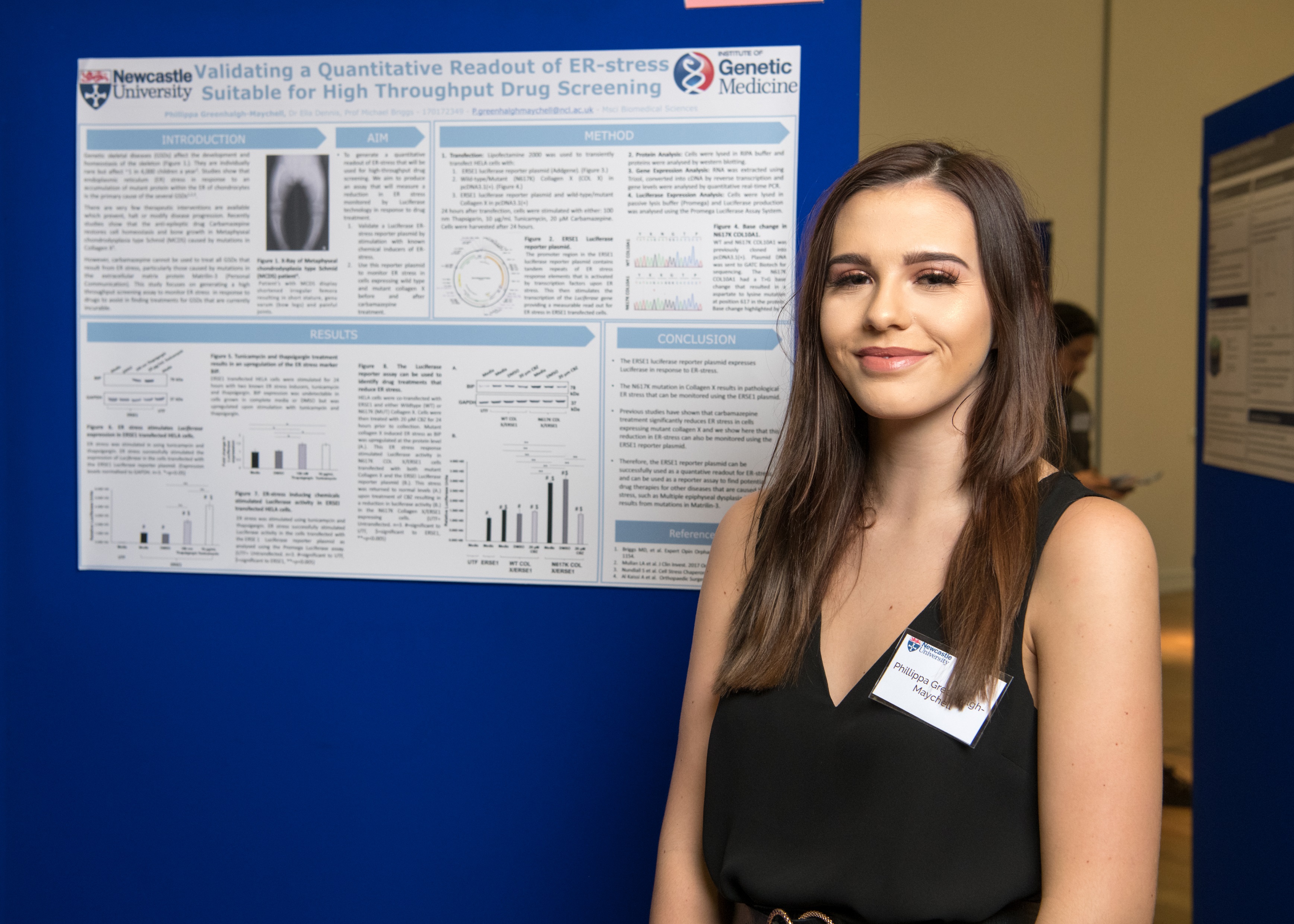2019 participants
 Phillippa Louise Greenhalgh-Maychell
Phillippa Louise Greenhalgh-Maychell
- Msci Biomedical Sciences
- Validating a Quantitative Readout of ER-stress Suitable for High-Throughput Drug Screening
Genetic Skeletal Diseases(GSDs) affect the development and homeostasis of the skeleton and result primarily from pathological endoplasmic reticulum(ER) stress caused by the retention mutant proteins within the ER. Currently there are few therapeutic interventions available. Studies have shown that the anti-epileptic drug Carbamazepine(CBZ) recovers cellular homeostasis and bone growth in Multiple Chondrodysplasia Type Schmid(MCDS) that results from mutations in Collagen X. Despite this, Carbamazepine cannot be used to treat other GSDs that results from mutations in other extracellular matrix proteins. We have successfully validated an assay to monitor ER stress in vitro using Luciferase technology. For proof of concept, we show that using the reporter plasmid ER stress can be monitored in cells expressing mutant Collagen X and this stress is reduced with CBZ. Future experiments will therefore use this successful reporter assay to perform high throughput drug screening to identify treatments for other GSDs caused by pathological ER stress.
Funding Source: Newcastle University
Project supervisor: Professor Michael Briggs
